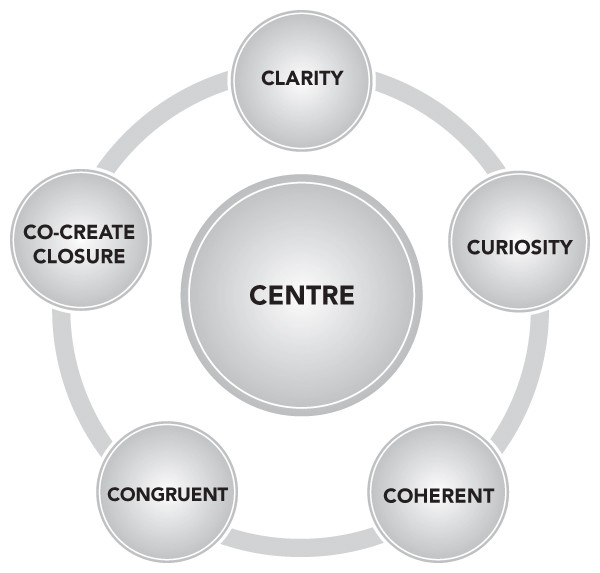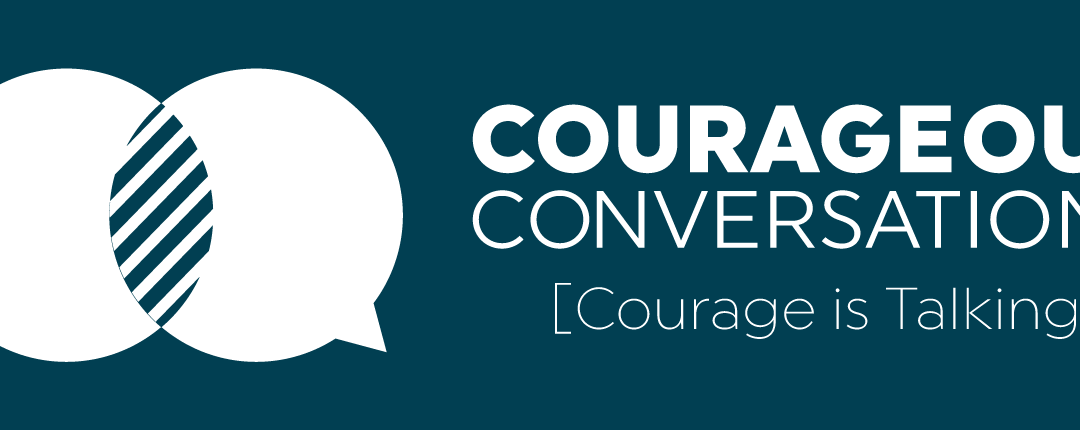In today’s episode of IMPACTFUL Teamwork I delve into a topic that often poses a significant challenge for many of the leaders I work with—having what I like to call Courageous Conversations. You may know these as “difficult conversations,” but I prefer the term courageous because it shifts the energy and intention of the conversation in a more positive and empowering direction. In fact, in my book Unbridled Business, I refer to these as Unbridled Conversations.
Why are courageous conversations so important? Let’s explore that, along with a framework I’ve developed to help you navigate them effectively.
The Need for Courageous Conversations
As leaders, we all know those moments when we need to have a conversation with a team member—perhaps about underperformance, poor attendance, or even interpersonal conflict. Yet, we avoid it. Why? Fear of conflict often holds us back, and we tell ourselves it will just “work itself out” or that “it’s not that bad.” However, when these conversations don’t happen, there’s a silent tension that affects everyone in the organisation.
You’ve likely been there: the elephant in the room grows bigger as team members become aware of the issue, but no one addresses it. Productivity suffers, engagement drops, and internal politics start to brew. Research from CPP Inc. reveals that workplace conflict costs U.S. companies a staggering 2.8 hours per week per employee. And Accenture found that 35% of employees left their jobs voluntarily due to unresolved internal issues. Imagine the energy and resources wasted by not having that one essential conversation.
The Benefits of Honest Communication
Open, honest, and clear communication is a pillar of successful teamwork. When team members feel heard and understood, they are more motivated, engaged, and productive. McKinsey’s research on top-performing companies shows a direct correlation between transparency in meetings and overall company success.
In a similar vein, Gallup’s State of the Workplace report found that when leaders ignore their employees, 40% of them disengage from their work. However, when employees receive critical feedback—even if it’s negative—only 22% disengage. This tells us something critical: people want to be acknowledged. They want their contributions to be seen, even if it comes with constructive criticism.
This is why having courageous conversations can transform not only individual relationships but also the overall health of an organisation. When leaders step into these conversations with courage and empathy, they can prevent misunderstandings, address issues head-on, and create an environment where challenges are opportunities for growth.
The Cost of Avoidance
One of the biggest mistakes I see leaders make is avoidance—what I call the “ostrich approach.” You stick your head in the sand, hoping the problem will go away. But what really happens is that unresolved issues fester, morale suffers, and team dynamics break down.
I’ve been there myself. Years ago, I had a team member who wasn’t a good cultural fit, and I avoided having the difficult conversation. My team eventually confronted me, saying, “Julia, either you address this, or we’re leaving.” That moment made me realize that avoiding the conversation didn’t just affect my relationship with this one person—it affected the entire team.
When we avoid these conversations, we rob our team of the opportunity to grow and to build trust. We also rob ourselves of the chance to become better leaders.
The Courageous Conversation Framework
So, how can you approach these conversations with confidence and clarity? I want to share a framework that I’ve developed over the years, which has helped me and my clients navigate courageous conversations with greater ease and effectiveness.
- Prepare and Center Yourself
Before entering any courageous conversation, preparation is key. This doesn’t just mean knowing what you want to say, but also moderating your emotions and energy. I always advocate for grounding yourself through a technique called “box breathing,” which helps you stay calm and focused. When you’re centered, you can stay present and truly listen, rather than react.
- Clarify the Issue
Next, get really clear on the issue at hand. Ask yourself, “What is the core behaviour or situation I need to address? What impact is this having on the team or the business?” Stay focused on this issue, and don’t let the conversation get derailed by unrelated topics. It’s easy to stray from the main point, but the more focused you stay, the more productive the conversation will be.
To gain a broader perspective on the situation, I encourage you to use a tool called the “Three Positions of Empowerment.” This involves looking at the situation from three different lenses:
- Self: How do you feel about the situation? What emotions are coming up for you?
- Other: What might the other person be feeling or thinking? What might their perspective be?
- Observer: What would a neutral third party see? This gives you an objective view of the situation and helps you prepare for a more balanced conversation.
By physically moving between these positions (literally stepping into different spaces to represent each lens), you can shift your energy and perspective. This will help you enter the conversation with greater empathy and understanding.
- Cultivate Curiosity
When the conversation begins, adopt a mindset of curiosity. Pretend you know nothing about the other person’s intentions, because, in truth, you don’t. Ask open-ended questions and listen deeply. This is about discovery—finding out what’s really going on for them. Don’t interrupt, and try not to take things personally. The goal is to understand their perspective before you offer your own.
- Coherance
Once the other person has shared their perspective, take a moment to reflect back what you’ve heard. This is called mirroring, and it ensures that they feel understood. You don’t have to agree with everything they say, but by acknowledging their feelings and concerns, you create a space of mutual respect.
- Congruent
Now it’s your turn to express your perspective on the topic. Clarify your position without minimising theirs. Help them see your perspective and how that’s at odds with their view.
- Co-Create Solutions
Finally, move into solution mode. Collaborate with the other person to brainstorm ways to move forward. Ask them for their ideas on how to address the issue, and be willing to contribute your own thoughts as well. The goal here is to co-create a path forward that both of you can commit to. This increases buy-in and ensures the conversation leads to real change.

The Impact of Courageous Conversations
Having Courageous Conversations doesn’t just solve immediate issues; it transforms the culture of your organisation. When team members know that open dialogue is encouraged, they become more invested in their work and feel a deeper sense of connection to the team. Trust is built, engagement increases, and the overall energy of the workplace shifts for the better.
So, I encourage you: what Courageous Conversation are you avoiding? What issue have you been putting off that could, if addressed, lead to greater clarity, trust, and growth within your team? I promise you, once you step into these conversations with courage and intention, the results will be far more rewarding than you anticipate.
Remember, communication is the lifeblood of any organisation. It’s time to have those Courageous Conversations and see the transformation they can bring.
Be brave in your conversations!
Show Notes:
Here are the highlights from this episode:

Julia Felton (aka The Business Wrangler) is the founder of Business HorsePower. Business leaders, entrepreneurs and executives hire her to accelerate their business performance by harnessing the energy of their people to work more collaboratively together. By aligning purpose with actions the team achieves exponential results as everyone starts pulling in the same direction.
Julia believes that business is a force for good and through designing purpose-driven businesses that leverage the laws of nature, and the herd, you can create businesses founded on the principles of connection, collaboration and community that make a significant impact in the world.

